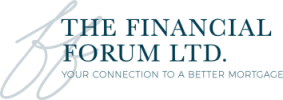Similar to visiting a doctor for an annual check-up, having your vehicle looked at by your mechanic on a regular basis and getting things done around the home, you should also visit your finances regularly, especially your mortgage.
Many things can change over the course of a year, both with you personally and with things going on in the local and world economy. Leaving your mortgage on “auto pilot” for the full term is never a good idea, especially since most sign up for the typical 5 year term or sometimes longer. You may have received a promotion, had a new child, planning for kids’ education, upcoming retirement, inheritance, home repairs, etc. It can be a short list, or a long list. Regardless, these changes can and will affect your finances and possibly how you should treat your mortgage.
If all went well at inception, your mortgage was designed for you and was a very good fit for you, at that time. Performing an annual check-up is a very wise thing to do and you should plan for this. Your mortgage should not only be paid regularly, it should be “managed”.
Most often, consumers will just pay their regular mortgage payments, wait for their renewal letter and simply sign it back without even considering if it is meets their current financial situation. This complacency or laziness ensures only one thing – that you will not meet or exceed your financial goals. Sometimes changing providers or amending your mortgage terms does take some effort and requires some paperwork, but you should put as much thought into your mortgage annually and especially at renewal time as you did when you signed your original deal.
An annual review should not take very long. You should simple focus on two or three main points and determine if there are better or more suitable options for you. If so, you then need to take action. If not, you can simply move everything forward until your next checkup date. There are three main factors you should focus on for each checkup. However, this checklist becomes a little more involved at renewal time. The three areas you should focus on:
- Vulnerability to Rate, Payment Risk – Is your mortgage payment fixed or subject to change (i.e. – variable). Is your renewal period a fairly short timeline (i.e. – 2 years or less)? If so, what affect, impact, will a higher rate have on you at renewal. Are you currently on a variable rate and considering a lock? These are some of the factors you should consider.
- Income and cash flow status – Has your income increased / decreased? Have you allocated the proportionate amount of any pay increase towards your debt reduction? Are you still within your goals of being mortgage free? Can you tweak your payments and/or amortization to better suit your current income and cash flow?
- Interest Rates – Look for opportunities, always look for opportunities. If refinancing your mortgage early can save you money, execute. Be aware of market conditions and rates.
If you set a goal to be mortgage free in 25, 20 or whatever number of years, all of these factors should be considered so that you reach your goal and save as much interest as possible over this time. This includes forecasting and budgeting on different rates and amortizations over the “full” amortization period.
You should also be very aware of the pre-payment privileges built into your mortgage. In most cases, you will have a pre-determined amount you can pay against your principal each year and you should also have a pre-determined amount that you may increase your payments each year. In both instances, this is a maximum amount, which should not scare you. That old saying “every little bit helps” is especially true with mortgages. Any pre-payment you make will not only reduce the principal balance by that amount, but will also lower the amount of interest and increase the amount of principal you pay on each subsequent payment, which can be very impactful. Even an extra $50 or $100 per month could save you thousands on interest and reduce your amortization by years.
Did you start off with monthly payments or semi-monthly payments but are now in a position to pay on a bi-weekly or weekly accelerated plan? If so, do it. This will also save you thousands on interest and reduce your amortization.
Yes, you should still be looking at investing into savings and retirement. Although your mortgage is not your only financial goal, it should be a priority and you just need to manage and allocate accordingly.
If you have accumulated high interest debt that will not go away, re-visiting your mortgage may in fact be the best escape and exit plan. This may put a dent in your timeline to be mortgage free, but changing course in this instance is a wise approach if it can save you money and put you back on track.
There are various ways to top up and refinance your mortgage if the need and situation arises. If can be for renovations, debt consolidation, kids’ education, or whatever reason. These should be considered and explored if the need and opportunity is present.
Regardless of the reason, sometimes making changes to your mortgage during the term makes financial sense.
Have any questions, need any advice? Visit us at www.thefinancialforum.ca. Email us at mortgages@thefinancialforum.ca. Call us at (905) 265-0246.
VERICO The Financial Forum Ltd.
“Your Connection To A Better Mortgage”
Together, We Make Mortgages Easy!





